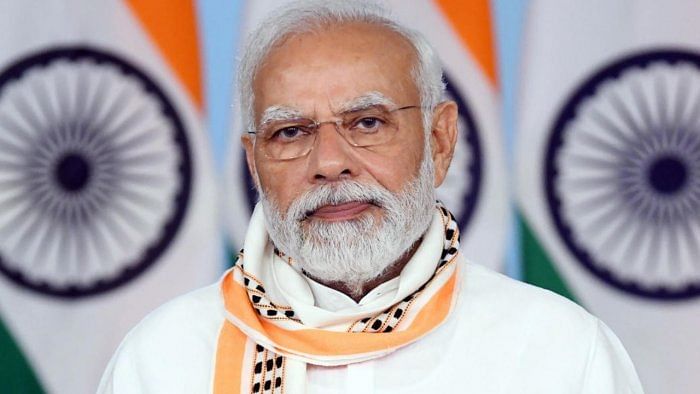
By using emergency powers to block the BBC documentary — which is critical of Narendra Modi’s handling of the Godhra riots in 2002, when he was Chief Minister of Gujarat — the Government of India has made it into an international story.
This was a strategically flawed decision, as subsequently many global news agency went on to report it. That reflects poorly on freedoms within the world’s largest democracy.
Add to that the United States-based Hindenburg research on the Adani group, which has had a meteoric rise and tremendous prosperity since 2014. The report, titled Adani Group: How the World’s 3rd richest man is pulling the largest con in corporate history, has had a tangible impact on India, sending the stock markets diving, and exposing public sector banks to huge losses.
We, therefore, have two narratives about India emerging from the West — both are unflattering. Inevitably, in the Indian social media space, the loyalists are seeing a giant western conspiracy against Modi and Gautam Adani. Such conspiracy theories begin with a presumption that no one has a right to examine the history and style of functioning of a leader of the second-most populated country in the world. By extension, no one should raise questions about a businessman who till the other day was ranked the world’s third-richest individual — news reports suggest that Gautam Adani has slipped to number seven.
The consequences of the Hindenburg report will play out for some time to come. The government cannot entirely control the narrative as the charges of ‘brazen stock manipulation and accounting fraud scheme’ as elaborated in the report come from the West.
The government’s response to the BBC documentary is baffling. In the polarised times we live in, this documentary does not damage Modi’s image among his followers within India. The intent of the documentary is to tell his story to a western audience, and in doing so, the BBC reinforces the image of a strongman leader. The second part of the documentary depicts Modi as the absolute ruler of the emerging Hindu Rashtra. Such imagery could reinforce faith among the sections of the middle-class that prefers a strong leader over a coalition government.
Both parts of the documentary put together a picture of how India’s Muslim population has fared under Modi’s leadership, with the first part focusing on events in Gujarat that took place two decades ago, and the second giving an account of what has been happening in India post-2019, from Kashmir, to Assam, with the anti-Citizenship Amendment Act protests, the Delhi riots, and even focusing on one case of lynching and police brutality. The point is not whether there is anything new in the documentary, but that the BBC has put together a hard-hitting narrative, and that it is an internationally influential platform.
The second part of the documentary was disturbing, particularly as I had covered the anti-CAA protests, and was standing in the middle of a barrier in North-East Delhi when the riots broke out; I saw dead bodies float through the canals, and stood outside the morgue as unidentified corpses arrived. I have small niggling issues with the script that talks in absolute terms of Hindu-Muslim ‘enmity’ and Modi’s popularity, without giving the necessary caveats. That said, the documentary will influence the international audience.
However, why would supporters of this regime object to a domestic audience viewing the documentary? There are many who believe that showcasing anything on the Hindu-Muslim fault-line helps Modi and the Bharatiya Janata Party (BJP) in the domestic arena. Political parties that oppose the BJP say it’s strategically unwise to harp on the Hindu-versus-Muslim debate, and smarter to stick to economic issues such as unemployment, poverty, and the free run allegedly enjoyed by the Adani group.
In the international arena, the BBC documentary has now placed the Prime Minister in the league of strongmen leaders who do not respect human rights, and act against minorities if it suits the ideological and political agenda. At a time when it’s part of the domestic political agenda to position Modi as an internationally respected figure, the BBC documentary punctures that image.
This documentary lays it out quite clearly that the world engages with Modi because of the position he enjoys, not because they see him as a role model worth emulating. If we link up western narratives about India since Independence, they would range from M K Gandhi and non-violent protests, to India’s current image as a flawed democracy where a very powerful leader is at the helm of affairs and violence against minorities in deed, word, and symbolism is endemic.
Nevertheless, the West does not really care about the rest of the world as long as its own strategic interests are served. For if the US President can pose next to the crown prince of Saudi Arabia, Mohammad bin Salman who is accused of having ordered the murder of journalist Jamal Khashoggi, rest assured that the damage to an elected Indian Prime Minister by a BBC documentary is limited. Even though the West is currently annoyed with India for not boycotting Russia over the Ukraine war, in the long-term India has a role in the counter-balancing strategies against the rise of China.
Blocking the BBC documentary was not a prudent move by the Government of India. Maybe New Delhi would have liked that the documentary be stopped globally, but could do so only in India. Even that’s not working in the age of the internet. Meanwhile, the bigger damage continues to be done by the report on the Adani Group.
(Saba Naqvi is a journalist and author.)
(The views expressed above are the author's own. They do not necessarily reflect the views of DH.)